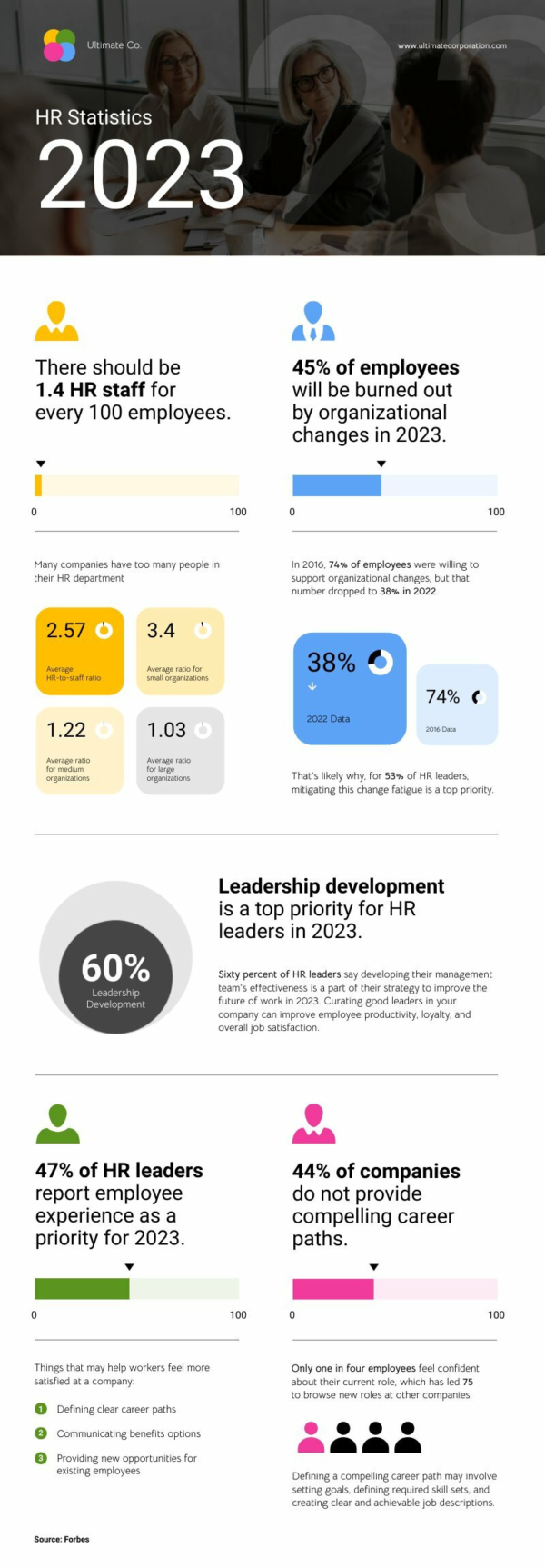
HR Statistics
Edit for freeYou'll be asked to log in or sign up for a free Piktochart account first.
Human Resources (HR) plays a pivotal role in the modern workplace. It's not just about hiring and firing; it encompasses various functions crucial for organizational success. Here are some key HR statistics that shed light on its importance and impact: 1. Employee Retention: HR professionals are at the forefront of employee retention efforts. It costs a company 33% of an employee's annual salary to replace them. Underscores the significance of retaining talent. 2. Remote Work: The COVID-19 pandemic accelerated the shift to remote work. In 2020, 88% of organizations encouraged or required employees to work from home. HR had to adapt swiftly to manage remote teams effectively. 3. Diversity and Inclusion: Diversity is a growing focus in HR. Companies with diverse workforces are 35% more likely to outperform those without diversity initiatives. HR plays a vital role in fostering inclusive environments. 4. Recruitment Challenges: Finding the right talent remains a challenge. A staggering 73% of HR professionals need help recruiting suitable candidates. The competition for top talent is fierce. 5. Employee Engagement: Engaged employees are more productive. However, only 36% of workers in the U.S. feel engaged at work. HR initiatives, like wellness programs and career development, can boost engagement. 6. Training and Development: Continuous learning is crucial. Companies that offer comprehensive training programs have a 218% higher income per employee than those with less training. 7. HR Technology: HR tech is on the rise. In 2020, 87% of organizations used some form of HR technology. These tools streamline processes, making HR more efficient. 8. Compliance: Navigating labor laws and regulations is a significant HR responsibility. Non-compliance can be costly, with penalties and legal issues. HR teams must stay vigilant. 9. Workplace Well-being: Employee well-being is a priority. 92% of organizations have workplace well-being programs focusing on physical and mental health. HR leads the charge in creating supportive environments. 10. Remote Onboarding: With remote work, onboarding has gone virtual. 60% of companies have revamped their onboarding processes to accommodate remote hires. In conclusion, HR is evolving in response to changing workplace dynamics. HR professionals are at the forefront of shaping the modern workforce, from employee retention and remote work to diversity and technology. Understanding these HR statistics provides insights into organizations' challenges and opportunities today.
Available File Type
Customization
100% customizable